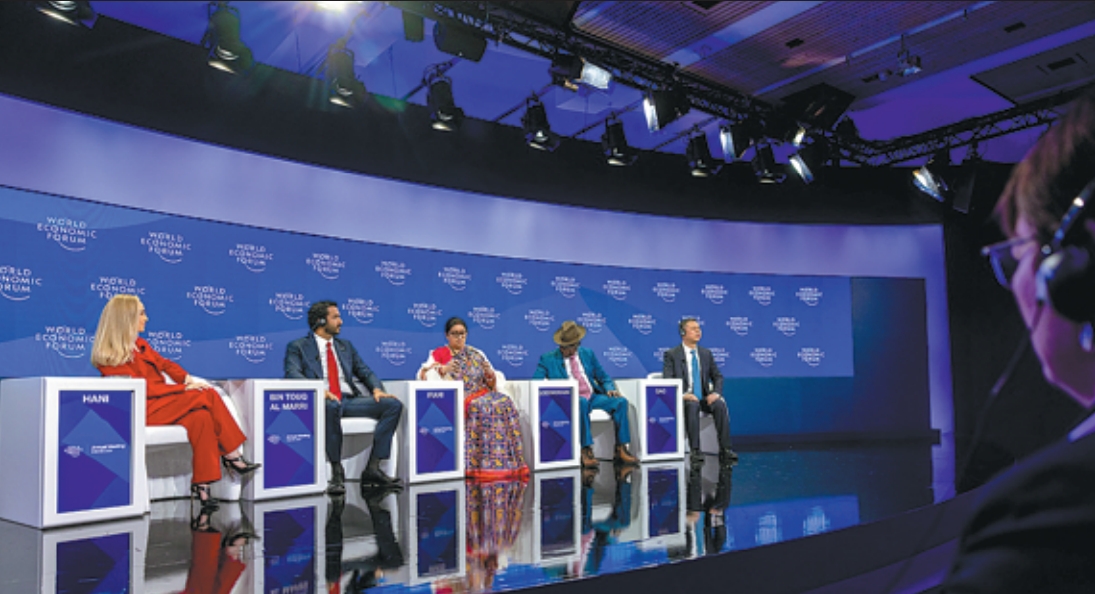BRICS can help boost global economy
By ZHENG WANYIN in London | CHINA DAILY | Updated: 2024-01-20 07:24

The enlargement of BRICS can bring benefits to the global economy by leveraging the potential of developing countries and South-South cooperation, said government officials and industry experts on Thursday during a panel discussion at the World Economic Forum in Davos, Switzerland.
The discussion centered on the impact brought about by BRICS' historic expansion, which was announced in August.
Six countries, namely Egypt, Ethiopia, Iran, Saudi Arabia, the United Arab Emirates and Argentina, were invited to join BRICS — an intergovernmental organization originally comprising Brazil, Russia, India, China and South Africa. Argentina withdrew from its planned entry in December.
Abdulla bin Touq Al Marri, minister of economy of the UAE, said an expanded BRICS can contribute to easing global inflationary pressures by increasing supplies.
"BRICS can have more trade flows, more connecting trade ports, more connecting policies on the level of creating products toward the market needs, especially in the developing nations. I think that is something which will be brought to the table of BRICS," he said.
Gao Jifan, chairman of Chinese photovoltaics company Trina Solar, said BRICS can help the world achieve green development as many of the members are now leading the way in developing renewable energy.
"This is not just about sharing between the BRICS countries, but also about making our contributions to the world by spreading green technologies to better stimulate the green transition," he emphasized.
During the session, questions about whether China was dominating BRICS and the so-called political ideology behind the organization were also raised.
Enoch Godongwana, finance minister of South Africa, said the institution is built on the basis that there is mutual respect.
"There is no one dominating each other in BRICS," he said. "There is consensus in decision-making. Therefore, there can be no dominance."
Godongwana further pointed out it is unlike the Bretton Woods institutions.
"The World Bank belongs to the Americans. The International Monetary Fund belongs to Europe. That is not questionable. And therefore, they have got to be dominant in those institutions. In BRICS, it's consensus," he said.
Al Marri emphasized that BRICS is not driven by political agenda, but instead represents "opportunities" and "economic drivers" for the world.
"BRICS is not a political kind of stance, neither we are in a Cold War environment to (discuss) join or not to join. It is the opportunities, the trade, the economic drivers that actually allow us to look at BRICS within the global South-South agenda of trade and economy," he said.
zhengwanyin@mail.chinadailyuk.com
























